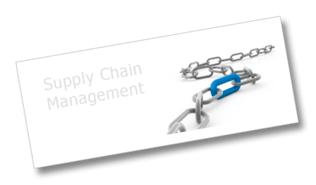 We are continuing our discussion stemming from an insightful white paper published by The Boston Consulting Group, BCG sets forth some very cogent points that should be—indeed, must be—considered by any supply chain managers hoping to increase their success over the coming years.
We are continuing our discussion stemming from an insightful white paper published by The Boston Consulting Group, BCG sets forth some very cogent points that should be—indeed, must be—considered by any supply chain managers hoping to increase their success over the coming years.
Improving Data Collection and Analysis
Implementing a demand-driven supply chain (DDSC) requires participants to share data on the individual SKU level and to do so on a near-real-time basis. Certainly, this data must be accurate, if the system is going to work. But these data must also be timely.
While the most crucial data to be made available across the supply chain is end-user actual demand on the SKU level, it may also be helpful to have available the following data for some trading partners:
- Work-in-process
- Finished goods or intermediate products in-transit
- Quantities on-hand for finished goods, components and raw materials
Since some smaller end-user outlets may not have systems capable of tracking and reporting daily consumption, the DDSC exchange infrastructure should provide an on-line ordering system that makes demand data from such outlets available to the supply chain partners as soon as it becomes available via a replenishment order.
The DDSC participants should see the sharing of data in near real-time as being a key contributor to synchronizing of the flow of product across the entire supply chain. By providing timely and accurate data on actual consumer demand, the damaging “bullwhip effect” can be reduced or eliminated. When these data are used in a conscientiously applied program aimed at reducing the length of replenishment cycles and dramatically down-sizing transfer batches (independent of purchase pricing agreements), everyone in the supply chain reaps the benefits.
Rethinking Operations
In their white paper, BCG admonishes, “Companies should analyze their production capabilities and remove any obstacles [to] agility.” Without stating it in so many words, it is clear that the BCG study has come to the conclusion that, in the demand-driven supply chain, the participants must (1) balance the FLOW of product (not inventories or capacities), and (2) buffer against attacks of “Murphy” using capacity (not inventories).
-
The BCG study emphasizes “flexible manufacturing,” including reduced set-up times, the use of a flexible labor force, the availability of external capacities, and small batches. Cultivating these practices and capabilities help supply chain participants respond quickly to spikes in demand and make up for lost time due to the occasional attacks of “Murphy” without becoming overburdened with operating expenses when dips in demand occur.
Also highlighted by BCG in the report is the need for flexibility in logistics. Rethinking logistics and methods becomes essential when smaller transfer batches and more frequent replenishment—both cornerstones of demand-driven supply chains—become the objective.
Key to operational improvement in most organizations must be the rethinking of what are likely to be longstanding (even if unwritten) policies and procedures around procurement. The shift from cost-world thinking to Throughput thinking is not easily made, but the benefits are likely to be profound. Recognizing the unquantifiable costs of lost sales, lost customers and lost reputations requires cost-world thinkers to shift from being “precisely wrong” to being “approximately right” when it comes to discovering what it takes to make more money tomorrow than the firm is making today under its old policies.
In our next article which is Part 3 in this series, we will cover:
- Realigning performance metrics and incentive plans
- Cogently managing the tradeoffs between cost and service
- Effecting change in the corporate culture
We would like to hear your comments. Please feel free to leave them here, or contact us directly with your comments and questions.



